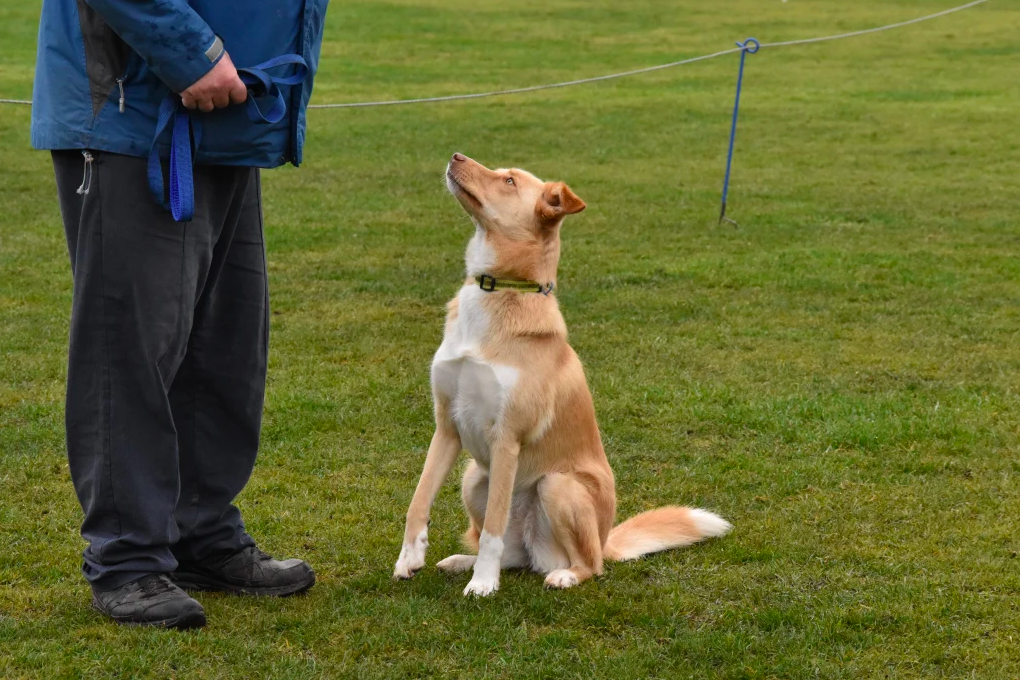There is a rather lovely cartoon, of dubious theological veracity, showing a puzzled man before the judgment throne on which is seated a dog in glorious white robes, saying: “The joyful, loving, eternally forgiving nature of dogs never tipped you off?”
It will resonate with many companions to dogs. Our family has always had dogs, but none so delightful as my current border collie-labrador cross, Nessie. I call Nessie my Mary Poppins dog, “practically perfect in every way” – joyful, loving, eternally forgiving, in fact. I’ve lost count of the times strangers have said “what a happy dog”.

Barney Zwartz and his dog Nessie.
Proud recipient of the advanced obedience certificate, she is also officially the cutest dog in our suburb, an award conferred at the 25th anniversary of the local native reserve association in 2019. Held in pouring rain and bitter cold, only 25 dogs and their companions turned up, and I suspect Nessie won for her friendly nature as much as her undoubted canine pulchritude.
A good friend’s Australian shepherd came second, despite his overwhelming confidence before the event. So I secretly bought a trophy online ($15), brought it to our morning walk, and gloated. Excellent value: he was jealous for days as I’d delicately needle, “I wonder why no trophy for second?” – until after a week I confessed. (The real prize was a pig’s ear.)
Nessie has a short, luxuriant coat which she insists on sharing copiously. She is confined to three rooms to reduce the spread of hairs, but to no avail – they are on all my clothing and throughout the house. I even invested in a T-shirt from the US that reads “an outfit without dog hair is not complete”.
She’s gentle, sweet-natured and, so far as I can tell, sees me as perfect – unlike other less generous but more clear-sighted members of my family. It’s a daily reminder of the grace of God because, according to Christian belief, that’s how God sees me – once, that is, Jesus’ perfection has been applied to me through faith. What glorious mercy that God himself should wash me from my pride, selfishness and failure.
Maybe humans could learn from dogs to be a little more uncritical and love better.
As The Washington Post noted, research on dogs has exploded in recent decades. Universities have opened canine cognition labs and scientists have probed dogs’ intelligence, behaviour, biology and skills. American author Clive Wynne, in a new book wittily entitled Dog is Love, argues that what makes dogs remarkable is not their smarts but their capacity to form affectionate relationships with other species — in short, to love.
Maybe humans could learn from dogs to be a little more uncritical and love better. What a gracious gift from a generous God are our dogs. Cats, of course, are despatched from below.
Barney Zwartz is a Senior Fellow of the Centre for Public Christianity.
This article first appeared in The Age.


